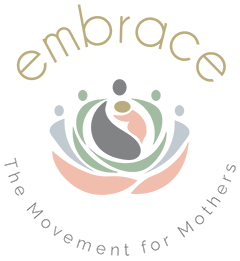Your Royal Highness,
We know the time you have with us is short. We realise much thought has been put into an itinerary that will have lasting impact. Even so, we feel compelled to ask you to make one symbolic stop on your journey to highlight the power and possibilities that emerge from truly listening to the stories of others.
Our cause is universal. It is located in stories that are simultaneously hopeful and devastating. The complexity of these stories exceeds the few words we have included here yet in their essence speaks to the courage and resilience of the human spirit.
Like the young mom who left school because the father of her baby still teaches there and the other girls talk behind her back. After eight months, her premature baby is still in intensive care. She has not been able to express enough breast milk and does not understand what all the pipes are for, but is too afraid to ask the nurses who blame her for his condition.
Or the mother who leaves her home at 4 am to take a bus and two taxis to get to her job as a domestic worker. There is no school nearby for her intellectually disabled daughter to go and so she asked a neighbour to look after her child. She recently discovered that daughter is pregnant and she does not know how to explain to her child what had happened to her body.
And the mother who regrets her choices. She could not take the beatings anymore so she killed her husband. She was pregnant when she was sentenced to another kind of prison. She was shackled to the bed when she gave birth. She feels guilty that when her son turns two, he will grow up in foster care too. She thinks about killing herself all the time.
We have been part of the conversation on the ground and we know that this is the quiet plight of many mothers.
- Approximately 1 million women give birth each year
- 1 in 3 experience pre- and post-natal mental health disorders, including depression and post-traumatic stress disorder
- 2 out of 3 children in South Africa are raised by single parents, mostly mothers
- 1 in 4 women reported they’ve experienced sexual violence in their lifetime.
We, the Mamandla Fellows, are a diverse group of women who represent a growing national movement called Embrace. Embrace has a simple aim: to support mothers throughout their journey because “birth is not just about making babies, it’s about making mothers – strong, competent, capable mothers who trust themselves and know their inner strength.” Even beyond birth, the experiences of mothers in the home, in the workplace and in society continue to affect their mental and physical well being as well as their ability to access or meaningfully participate in opportunities that could improve their lives. It is simply expected of mothers to bear the burden for themselves, for their children and for their families. Mothers see firsthand the consequences of a sluggish economy, obscene inequality, inadequate public services, over-burdened social protection nets and rampant, horrific violence and yet, far too often, we fail to see them. Unless the burden is equitably shared, our interconnected futures are at stake.
Mamandla means power to the mothers! It is a call to action echoing the same language used in the struggle against apartheid. Yet, our struggle is not fully acknowledged. In a country so affected by trauma, historical trauma, and all the additional layers of pain and strife, it’s important to remember the keepers of our stories themselves.
In conclusion, we have a simple request: please wear a white ribbon where others can see it. Tag us if you can. The white ribbon symbolizes the need to eradicate preventable maternal death and promote respectful maternal care. Through your simple action, you will be affirming that mothers’ lives matter.
Yours Sincerely,
Tana Makgoka, on behalf of the Mamandla Fellows.



This touched me so deeply and I pray that the Duchess has the privilege to support such a critical cause!
Thank you, Chule! We hope so too.